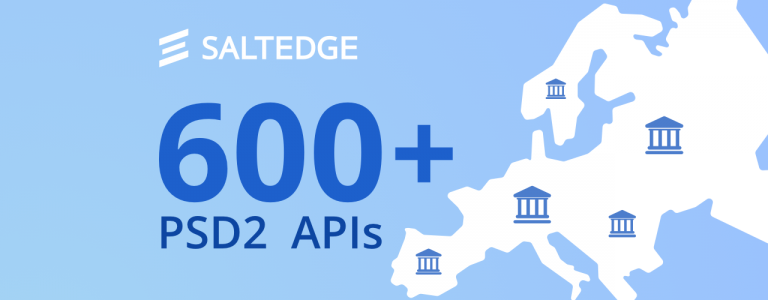Unlocking the power of open banking payments

We live in a world where the financial industry is rapidly changing. A new generation of players is challenging traditional banks, the financial technology landscape is quickly evolving, and alternative payment methods are emerging. In many of these changes, open banking has played a key role.
Since its advent five years ago, open banking – the technology that enables consumers to connect their payment accounts to third parties to gain access to a plethora of services, has revolutionised the financial world. Businesses, consumers, and financial institutions have all been benefiting from it. It’s no wonder that open banking is gaining traction across the globe as it gives customers a holistic view of their financial situation, provides smarter budgeting insights, enables instant, convenient, and secure payments, and so much more.
The UK’s FCA recently reported that the number of users increased steadily over the past five years. The Kingdom now has 7 million active users (of which 750,000 are SMEs) of open banking-powered financial management apps and payment tools, 1 billion API calls per month, and 68 million open banking payments in 2022.
Europe does not fall far behind. Juniper Research estimated that Western Europe will account for 80% of all open banking transactions by 2027, reaching around $332 billion.
Open banking payments, in a nutshell, are instant account-to-account transfers, sometimes referred to as ‘Pay by link’, ‘Pay by bank’, ‘Bank Pay’ or ’Instant bank transfer’.
They are quicker and more secure. Nevertheless, let’s take a deeper look at the benefits this innovative technology brings to the payment experience. In this article, we will examine some of its key advantages: security, speed, convenience, and cost-effectiveness.
Keeping things safe
Secure payments are one of the primary benefits of open banking. Traditional payment methods such as credit cards require consumers to enter sensitive account information, such as card details and bank account requisites, into a website or app. This information can be vulnerable to theft or fraud. According to the most recent version of the European Central Bank report on fraud, out of €5.16 trillion total transactions using cards issued in SEPA-member countries in 2019, €1.87 billion were fraudulent.
In open banking, security is paramount. Users grant access to their accounts by communicating directly with their bank via secure APIs. During account-to-account payments through open banking, the user must pass the strong customer authentication (SCA) which provides an extra layer of security to open banking payments, making it the most secure payment option available, ensuring customers have peace of mind their data and money is safe.
Salt Edge serves businesses from various industries that use open banking for safer subscription payments. In this scenario, the user initiates the first payment through open banking, passes the SCA and confirms they are the bank account’s owner. This way, open banking eliminates fraud almost entirely.
Lightning fast speeds
Open banking payments are faster than traditional payment methods. With card payments, as it involves lengthy communication between all the parties concerned: merchant’s gateway, payment network, customer’s bank and merchant’s bank, it can take up to 30 working days for the acquiring to be complete. With open banking, on the other hand, the payment is processed in seconds, meaning funds are available to the recipient almost immediately. This is particularly useful for businesses and makes a huge difference in operational efficiency, saving time and money.
Cost next to nothing
Finally, traditional payment methods are more expensive than open banking payments. Credit card companies typically charge several fees, such as merchant service charges to gateway, PCI compliance, or (network) tokenisation. Whereas open banking payments can be made at a much lower cost. Businesses that make a large number of transactions can especially benefit from this, as the savings can quickly accumulate.
There are regulations aimed at reducing card acceptance costs. Card-based payment transactions, for instance, were subject to the Regulation on Interchange Fees in June 2015. EC’s proposals cap interchange fees at 0.2% and 0.3% for debit and credit transactions in the EEA. Despite the interchange fee cap, merchants still will have to face high costs for accepting card payments, compared to open banking payments.
New emerging uses cases
Uses cases like VRP will change the way people manage their subscriptions and periodic payments. Having the option to select the bank account to pay from, establish limits, and manage the subscriptions with a couple of clicks creates comfort and enhances customer satisfaction. By doing this, businesses will be able to reduce their churn rate and receive payments on time.
Final Thoughts
It is undeniable that open banking poses a challenge to traditional banking practices. While maintaining the highest level of security, its mission is to innovate the financial field and develop a customer-oriented approach.
Having understood the payments’ massive opportunities and the power of easy access to bank data afforded by open banking, our goals now at Salt Edge are:
- to ensure that each channel we integrate and make available works well,
- to provide effortless onboarding with banks,
- and remove friction at each customer touchpoint.
However, building a fortress doesn’t happen alone, a village is needed. For this reason, we should acknowledge that all the involved parties need to invest time and resources.
By partnering with Salt Edge, you can unlock the potential of open banking and gain access to groundbreaking technological solutions. Salt Edge is your trusted partner for staying up-to-date with the latest fintech trends and remaining competitive in the market.
Have you considered open banking technology as a way to increase your business’ efficiency? Get in touch with us!
—Written by Mark Perlov, Open Banking Gateway Product Owner at Salt Edge

















